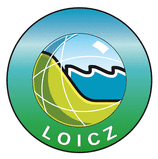Strategic Group Formation in the Mekong Delta - The Development of a Modern Hydraulic Society
The lower Mekong Delta, one of the largest river deltas in Asia, is a landscape shaped by the waters of the Mekong River that flows, as last part of its long way from the Tibetan Plateau to the South Chinese Sea, through a dense river and canal network in the Southwest of Vietnam. People in this area are, traditionally, exposed to a water-shaped environment and have lived for generations in adaptation to their natural surrounding without much human interference into the complex natural hydraulic system of the delta. However, this has changed dramatically during recent decades when hydraulic management started to become a key issue for the development of the lower Mekong Delta constantly, in particular with respect to the agricultural sector, which is the backbone of the delta’s economy.
After the Second Indochinese War ended in 1975 the delta started to shift from human adaption to human control, transforming itself into what Wittfogel has described as a hydraulic society. This was mainly due to the new socialist government’s policy of rapid agricultural extension and growing endeavours in hydraulic management for fostering irrigated rice production. By now, in many places of the delta hydraulic works such as additional canals, dykes and sluices have been set up, constructed for regulating water flows. Technical innovations in hydraulic management and agricultural production have not only had significant impact on the delta’s environment and ecology, but also have triggered social transformation, in particular the appearance of new social groups struggling for access to resources and power.
This paper intends to analyzes recent trends of social development and water management in the Mekong Delta from a scientific approach that is based on two social theories, firstly “strategic group analysis”, and secondly selected core aspects of Wittfogel’s social theory of “hydraulic society”. By presenting recently collected data, it is illustrated how the Mekong Delta has been transformed into a modern hydraulic society, in which certain strategic groups emerged as a consequence of growing activities in hydraulic management and agricultural-based economic growth. More specifically, the paper aims to give an overview of strategic group development in the delta by putting a strong focus on the process of forming a state bureaucracy of hydraulic management and the appearance of hydraulic construction companies as its clients. The paper shows how the strategic alliance between both groups has increased the chances for mutually appropriating government funds spent on hydraulic works and how this has caused ecologically and socially far-reaching impacts for the Mekong Delta.
Hans-Dieter Evers and Simon Benedikter
Full text: download




